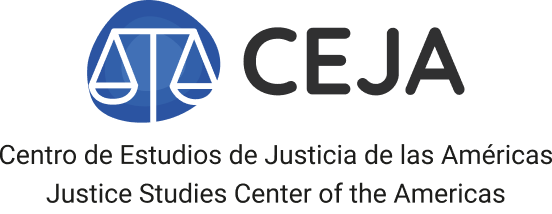In the context of the project Dialogue on the legal protection of the rights to health, education, work, social security and a healthy environment in Latin American and Caribbean countries coordinated by JSCA and the DIRAJUS project, which is funded by the German Cooperation Agency GIZ, the main findings of the publication of the same name were presented. The text includes 19 articles selected from a total of 70 submissions received from researchers throughout the region.
The workshop Societies demanding justice that gives answers: Enforceability and justiciability of ESCE in Latin America was
held on Monday, November 25. During the event, the results based on
experiences and case studies from Argentina, Chile, Brazil, Colombia and
Uruguay were discussed along with the critical nodes of justice systems
in regard to making cases justiciable.
The activity included DIRAJUS Program Director Helen Ahrens, JSCA Executive Director Jaime Arellano, JSCA Research and Projects Director Marco Fandiño, Gonzalo Fibla, Alejandra Bocardo and Ananías Reyes of JSCA, and Manuel Jacques, Alexander Schubert and Walter Albán of GIZ.
The ESCE Rapporteur of the Organization of American States (OAS), Soledad García Muñoz, offered a presentation on the demand for ESCE rights in the context of current political processes in Latin America. Nancy Yáñez of Universidad de Chile and Lidia Casas of Universidad Diego Portales offered comments.
One of the most important
findings of the study for Chile’s current situation –which includes an
ongoing discussion of creating a new Constitution through a plebiscite
in April 2020- is the lack of Constitutional recognition of economic,
social, cultural and environmental (ESCE) rights. Chile’s 1980
Constitution presents the most limitations of such protections in Latin
America because it does not explicitly guarantee these rights.
This implies a process by which
rights become property or are protected through the idea of life as a
seed right or, in other words, the idea of protecting other rights
through the right to life. As such, the regulation of the content of ESCE rights in Chile’s current Constitution is quite lacking, because it is generally reduced to freedom of access to rights but does not protect the guarantees of social rights.
